|
|
|
|
TikTok started off as a platform to create musical, lip-syncing and dance videos. It was dubbed by many as a frivolous waste of time. But the app grew during the pandemic as more and more people searched for something to do while stuck at home. Now, it’s not just well-loved, it’s the most downloaded app in the world.
TikTok has more depth than initially meets the eye. It’s a place to learn, become politically aware and discover new things about yourself. Scrolling through, you can find a science lesson on climate change from Bill Nye the Science Guy, lessons on Indigenous languages, how to dress for your body or up-to-date news and election coverage.
In today’s episode of Don’t Call Me Resilient we have three guests who use the app for more than just fun. I spoke with Jessie Loyer, a librarian from Mount Royal University and TikTok micro-influencer (@IndigenousLibrarian), about how she uses the app as a tool in the classroom.
Our show’s host, Vinita Srivastava, chats with Crystal Abidin and Jas Morgan. Crystal is an associate professor in the School of Media, Creative Arts and Social Inquiry at Curtin University in Perth, Australia, and founder of TikTok Cultures, a global TikTok research hub. And Morgan is an assistant professor of English at Toronto Metropolitan University and facilitator of the Digital Wahkohtowin & Cultural Governance Lab.
While the app definitely has its downsides – its upsides are worth paying attention to. Join us in listening to this episode of Don’t Call Me Resilient and please also explore the additional reading list in our show notes.
Also today:
Nyà:wen (thanks),
|

|
Haley Lewis
Culture + Society Editor | Producer, Don't Call Me Resilient
|
|

TikTok can be used as a tool to educate and has been a space for sharing information during major events.
(Shutterstock)
Vinita Srivastava, The Conversation; Haley Lewis, The Conversation
In today’s episode we take a look at how TikTok can be used as a tool to educate and has been a space for sharing information during major events in the last two years.
|
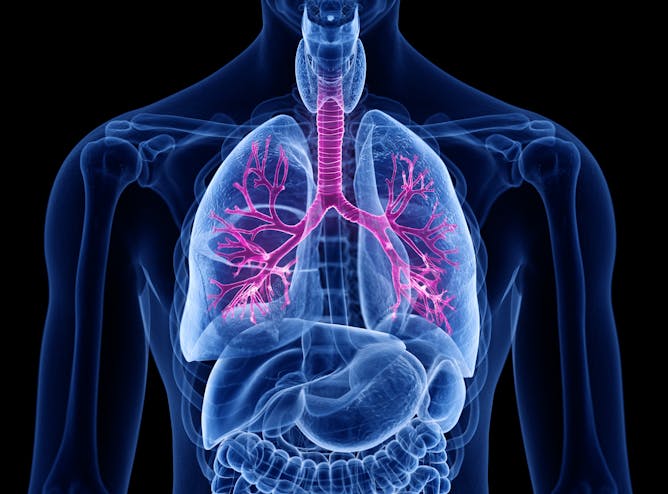
Inhaled vaccine delivery could take on not only COVID-19, but also other respiratory infections, including tuberculosis.
(Shutterstock)
Fiona Smaill, McMaster University
An inhaled COVID-19 vaccine would go directly to where the body would use it: the mucosal surface of the airways. This could mean less waste and more benefit, lower costs and reduced side-effects.
|
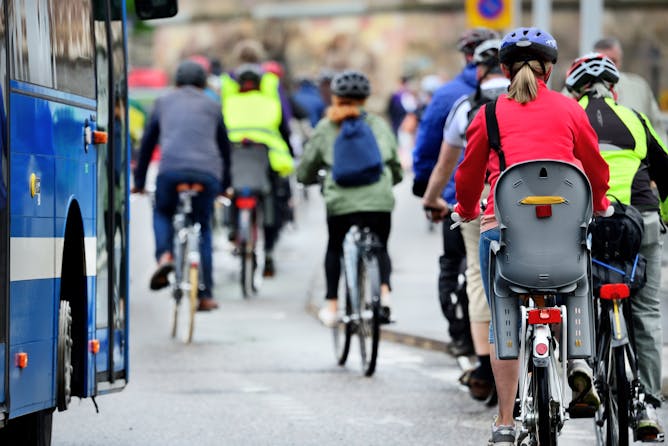
With the rising cost of gas, commuting via bicycle is a viable solution.
(Shutterstock)
Lyndsay M.C. Hayhurst, York University, Canada; Brad Millington, Brock University; Brian Wilson, University of British Columbia; Jeanette Steinmann, University of British Columbia; Jessica Nachman, York University, Canada; Mitchell McSweeney, University of British Columbia
The bicycle’s capacity to respond to pressing social issues has inspired both intrigue and optimism, especially in the context of COVID-19.
|
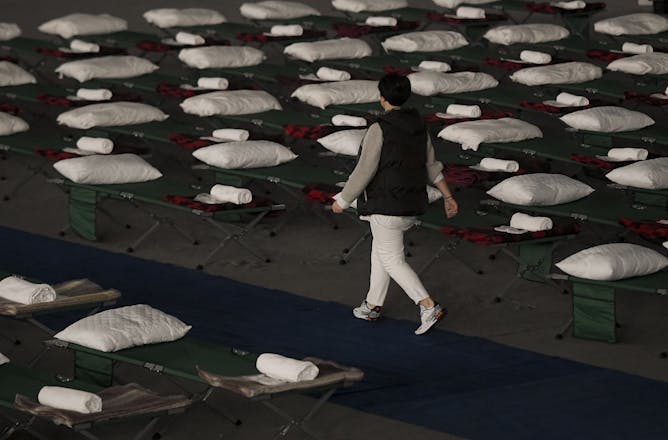
A woman walks past beds at a camp in Bucharest, Romania, ready for an influx of refugees fleeing the war in neighbouring Ukraine in April 2022.
(AP Photo/Andreea Alexandru)
Bruce Newbold, McMaster University
It has taken less than 11 weeks for the Russia-Ukraine conflict to become the greatest trigger for human displacement in Europe since the entire six years of the Second World War.
|
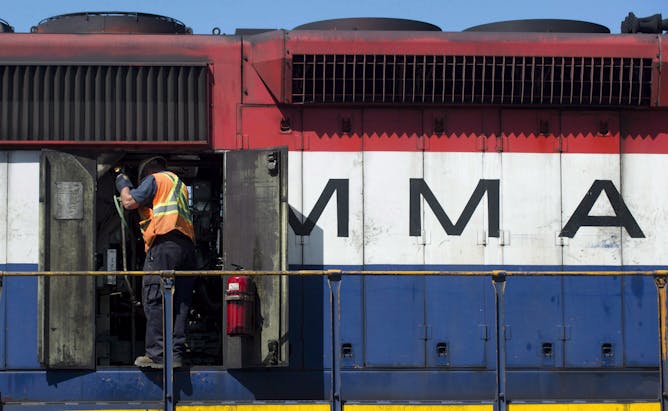
A policy decision to allow the Montreal, Maine & Atlantic Railway — a company with a poor safety record – to run its trains through a town in Québec with single person crews resulted the fourth deadliest railway disaster in Canadian history in 2013. Eight years later, Transport Canada is still suffering from safety issues.
THE CANADIAN PRESS/Graham Hughes
Bruce Campbell, York University, Canada
Industries have blocked or delayed new regulations and pushed to remove or dilute existing regulations by framing regulations as detrimental to creating jobs and wealth.
|

Quebec’s bill may be seen as part of on-going ‘culture wars,’ and alongside Ontario and Québec conservative governments’ grandstanding about ‘free speech’ on university campuses.
(Shutterstock)
Peter Ives, University of Winnipeg; Eve Haque, York University, Canada
In addition to undermining universities’ and faculty members’ autonomy, the bill blurs distinctions between free expression and academic freedom, and turns academic freedom into a political weapon.
|
La Conversation Canada
|
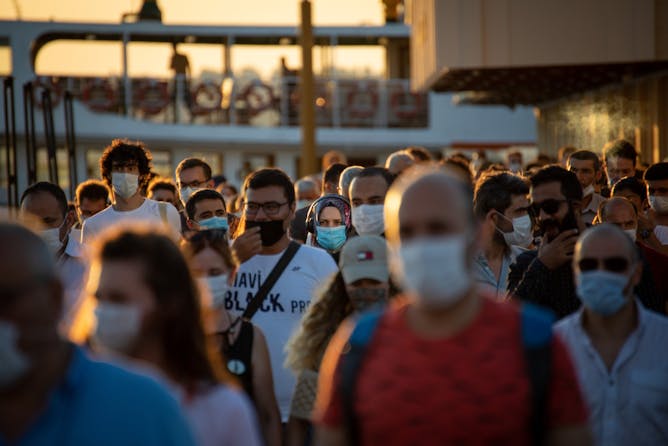
Des gens dans le port d'Istanbul, en août 2020. Les mesures sanitaires imposées dans de nombreux pays ont été peu critiquées.
Shutterstock
Marco Romagnoli, Université Laval
Directement ou en filigrane, le virus a agi comme un détecteur des dysfonctions des sociétés dans lesquelles nous vivons. Il a catalysé les tensions, attisant des haines et des peurs diffuses.
|
Arts
|
-
Erin Harrington, University of Canterbury
We are repeatedly told superior technology is one thing, but it’s not the plane that’s important in this film. It’s the (American) pilot and their instincts.
|
|
Health
|
-
Nick Fuller, University of Sydney
Is there such a thing as ‘fat but fit’? Excess weight is one risk factor for ill health, but it doesn’t perfectly predict it.
|
|
Politics
|
-
Emma Joy Reay, Anglia Ruskin University
Examining the digital kids that populate virtual gameworlds can reveal a lot about the role of the child in contemporary society.
|
|
|
|
| |
| |
| |
| |
|
|
|
|
|
|
|